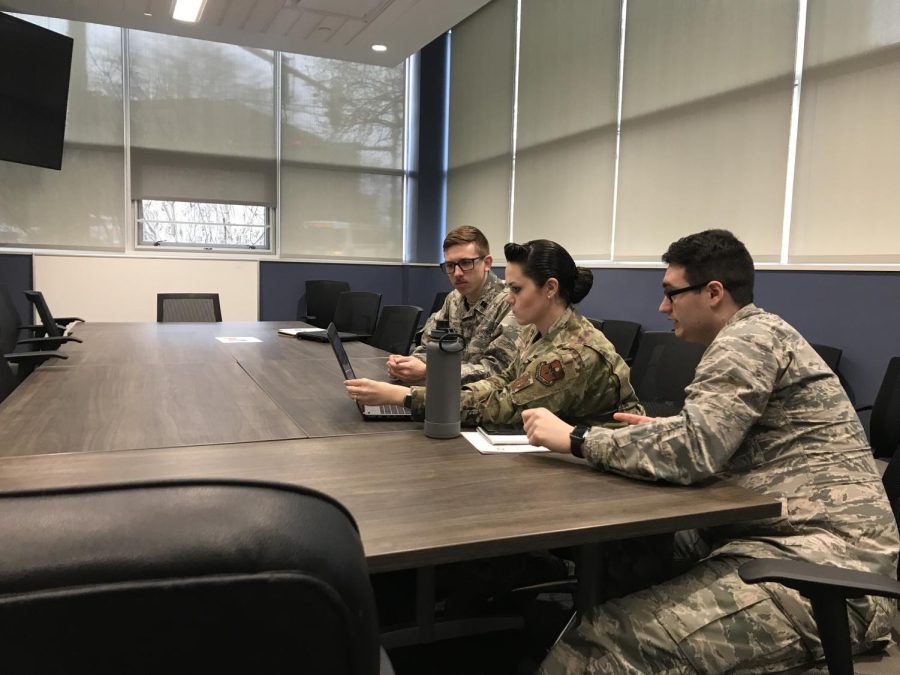Classes being held with ROTC bring more than just leadership skills
January 30, 2020
Going into the first week of ROTC and coming back from summer, it isn’t expected that hardcore training is in there right away. “I didn’t think there would be screaming, yelling and even almost crying on the first day back,” Nick Patterson, a sophomore in the ROTC program said. “It was intense and no one could remember any formations from previous training, which got us in serious trouble.”
When it comes to thinking about the Reserve Officers Training Corps, the words “educational classes” might not necessarily be the first thing that comes to mind. This is one of the most successful and difficult programs for a reason.
However, Kent State requires all ROTC students to maintain a college education, when going through intense training. Being part of the Army doesn’t just require being physically strong, it also requires a mentally strong mind.
For many first- and second-year students who sign up for the path of being part of this, they are required to take classes that deal with leadership skills, listening skills, and physical training. The classes aren’t just opened to students who are going into the army, but students who need core credits can get them from these classes as well. They include classes dealing with finance, economics, criminology, and psychology.
“To us,” said Lt. Col. David Simms, a military professor, “Your brain is just as important as your physical capabilities, if not more.”
Taking these classes can also give credits to students who aren’t in ROTC, fulfilling the additional hours.
These classes challenge students to think critically, have a stronger mental capacity and understand the balance between classes and training.
“The army needs people of all kinds,” Lt. Simms said. “People with financing skills, economics, criminal justice, engineering, airforce and more.” These classes are being taken at Bowman Hall, some at Schwartz Hall, which is where the ROTC office is now located at, and some at the Fieldhouse for training.
These first classes being taken explain the basics of the subject, not just for ROTC, but for life in general. Later on, more classes can be taken to expand the knowledge for a specific field in ROTC, but that is only if students want to move on.
Not everyone decides to be a part of the ROTC join the program right away. Some decide to join later on, and Kent State provides extra choices to choose from when it comes to picking classes.
Kent State allows their incoming junior and seniors who haven’t been a part of the program to do a two-week intensive training during the summer that sums up the two years they missed.
A lot of team building is involved, as well as communication, a strong will and taking the next step to becoming the next leader. “The intensive training really pushes everyone to do their best and requires students in this program, to be well-trained for almost anything in life and understand the situation that is going on around them.” Lt. Col. Simms said.
Bridget Lin covers ROTC. Contact her at [email protected].












